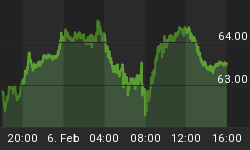It's suddenly fashionable in the mainstream media not just to criticize the Federal Reserve but to question its reason for existing. Watch Bloomberg's clearly sympathetic take on the ascendancy of Congressman Ron Paul, whose most recent book is End the Fed:
And here's an excerpt from a Wall Street Journal editorialby Cato Institute senior fellow Gerald O'Driscoll:
Why Do We Have a Central Bank?Ordinary citizens will increasingly ask that question if the Fed keeps acting as an unelected fiscal authority.
Why do nations have central banks? Countries have developed without one, and sophisticated financial systems have evolved in their absence. Some countries with a central bank have suffered for having one. Zimbabwe comes to mind.
The Federal Reserve System was created by an act of Congress only in 1913. It then presided over a great wartime inflation followed by a major depression in 1920-21. The 1920s were an era of prosperity, due as much to Treasury Secretary Andrew Mellon's wise fiscal policies as anything the Fed did. The Fed's performance in the Great Depression was disastrous, a judgment shared by its current chairman, Ben Bernanke.
The Canadian banking system weathered the Great Depression without a central bank. Instead of the thousands of small, undiversified banks that the United States had, Canada had a small number of banks (with many branches across the country) that were able withstand localized downturns. Even in the Great Depression, banking failures in the U.S. were concentrated in specific regions. Canada's central bank, the Bank of Canada, was created in 1935 in part because of pressure from the rest of the world. Canada had survived without it quite well.
In short, central banking has been neither necessary nor sufficient for the development of a modern economy and financial system. A number of reform proposals for the Fed are being crafted, but there is no agreement on why the institution exists.
Policy makers are debating the wisdom of the Fed's dual mandate of providing price stability and full employment. Rep. Mike Pence (R., Ind.) has introduced a bill to amend the Federal Reserve Act to end the dual mandate and give the Fed one goal: maintaining price stability (H.R. 6406). The dual mandate is seen by many as giving the Fed an impossible assignment of simultaneously optimizing two variables with one policy tool. It is also not clear that a central bank is capable of maintaining full employment.
Yet maintaining stable prices was not part of the Fed's original mandate and, aside from some economists, few thought it the Fed's job. The gold standard provided for stable prices over time, and the Fed's job was to maintain that standard (which does not require a central bank).
Some thoughts:
-
The story that began in 1913 -- when some international banks convinced Congress to create the Federal Reserve and put them in charge of it -- has begun a new chapter. As the damage done by bankers and politicians creating currency for their own profit becomes apparent to a broader cross-section of the population, the sheep are figuring out who's been shearing them. They're becoming receptive to arguments against central bank-managed fiat currency and in favor of sounder, gold-backed forms of money.
-
That Ron Paul has become a respected household name -- while serving in the least respected congress of all time -- is both a sign of how much the public mood has changed and a tribute to a man who wouldn't quit. His committee hearings will be epic.
-
For now the debate will focus on how to amend the Fed's operating rules. Maybe, the banks and politicians will argue, we should drop the "full employment" mandate and just have the Fed concentrate on price stability. This will be a diversion because it won't change the hands on the monetary levers.
-
The next chapter will come when the debt we're now building up finally bites. Then Gerald O'Driscoll's question -- why do we have a central bank? -- will move from the fringe to the center of the debate.















